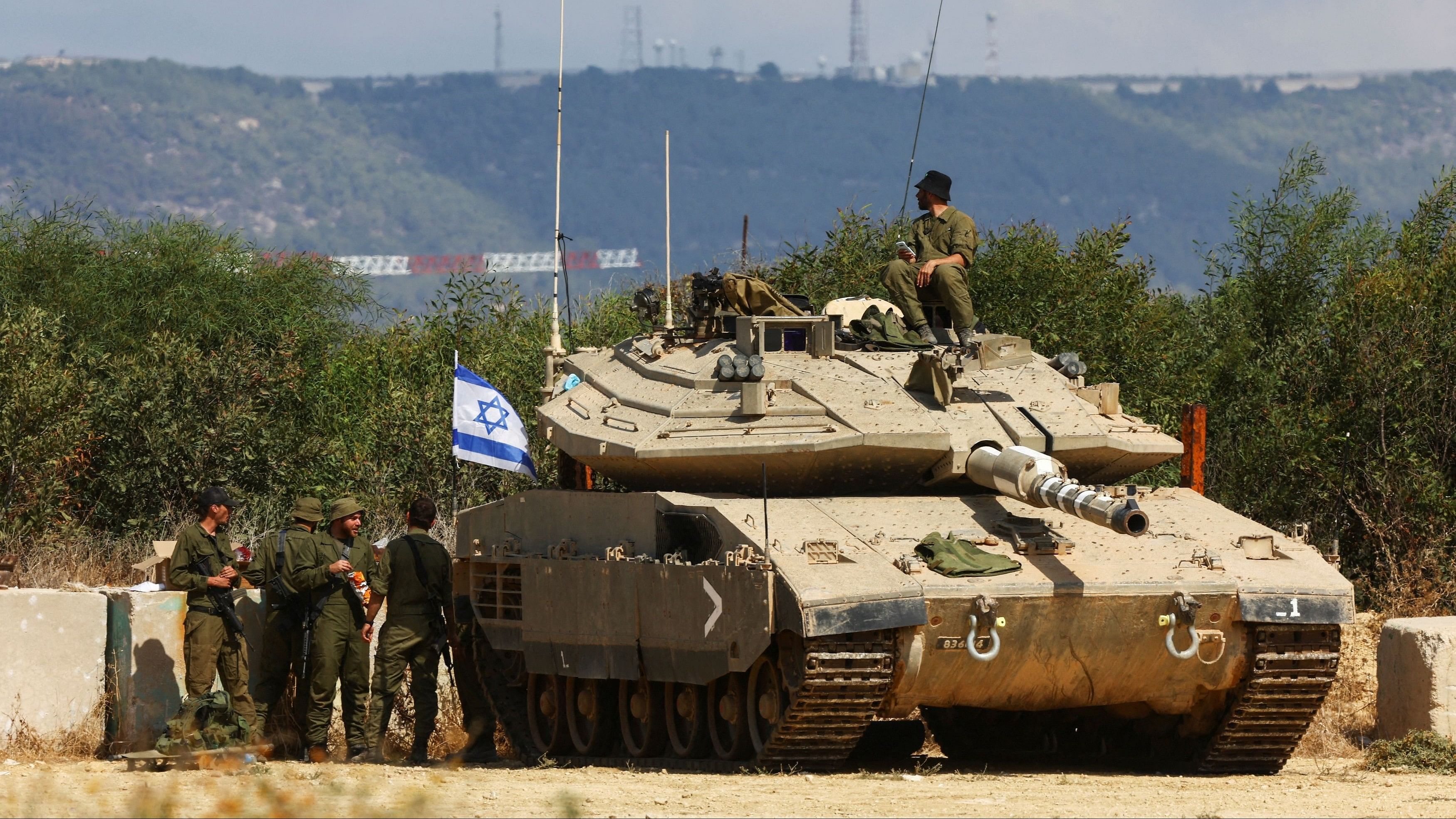
Israeli soldiers stand next to a tank near Israel's border with Lebanon in northern Israel, October 16, 2023.
Reuters
Investors last week flocked to exchange-traded funds tracking defence companies in the United States and Europe on expectations that the Israel-Hamas conflict could spill across borders.
The $5 billion iShares U.S. Aerospace Defense ETF saw net inflows of $7.2 million for the week ended Oct. 11, after seven straight weeks of outflows, according to Lipper data.
The $2 billion Invesco Aerospace Defense ETF attracted $48 million in net weekly inflows, its best showing since July 2022.
Both the funds jumped more than 4% last week as their top holdings Lockheed Martin and Northrop Grumman rallied 10% and 16%, respectively.
In Europe, the recently launched Future of Defence ETF saw weekly inflows of $1.1 million.
"Defence stocks rose on the back of the shock of last weekend's events ... for many investors it makes sense to have defense exposure as a hedge against geopolitical shocks," said Hector McNeil, co-CEO and founder of HANetf.
The bombardment of Gaza continued overnight, with residents saying it was the heaviest pounding yet in nine days of conflict.
Authorities in Gaza said at least 2,750 people had been killed in Israeli strikes that followed an attack by Hamas militants on the country on Oct. 7 that killed 1,300 people.
U.S. Secretary of State Antony Blinken was in the Middle East, with Iran warning of a regional escalation if attacks on Palestinians continue.
"If the fighting unfortunately endures longer, investors will further turn to weapons and defense suppliers," said Todd Rosenbluth, head of research at VettaFi.
The iShares and Invesco ETF have gained 5.7% and 14.2%, respectively, in the last two years on expectations of increased defence budgets, following the Russia-Ukraine conflict.
U.S. defence spending could grow at 4% above inflation in the medium-near term, compared to the historical 2%, analysts at BofA Research said in a recent note.